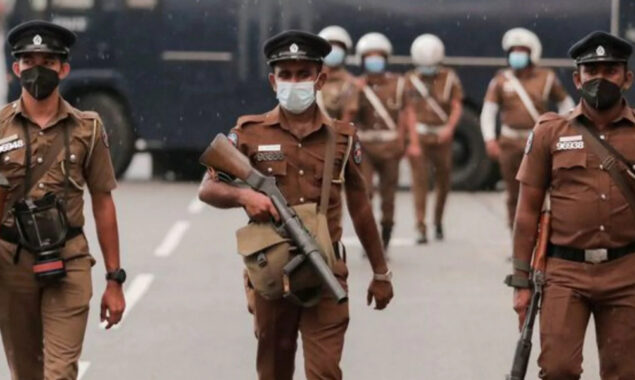Burundians evacuate as lake rises in Tanganyika
Amissa Irakoze never frightened Lake Tanganyika in her 40 years beside the...

Tuesday’s killing of an anti-government protester in Sri Lanka sparked international outrage and a curfew in central Sri Lanka on Wednesday.
As the economic situation worsened, protesters called for the resignation of President Gotabaya Rajapaksa. The administration pledged an inquiry into reports that police used excessive force in dispersing them.
With frequent blackouts, acute shortages of gasoline and other essentials, and skyrocketing prices, Sri Lanka is experiencing its worst economic collapse since independence from Britain in 1948.
Sri Lanka’s police commander Chandana Wickramaratne has already launched an investigation into the actions of policemen in Rambukkana, he said as he issued an indefinite curfew.
Police claimed the mob in Rambukkana, 95 kilometres (60 miles) east of the capital, was going to set a diesel tanker ablaze when authorities opened fire to disperse, according to an earlier statement.
First deadly fight since anti-government protests began this month left at least 29 people injured, including 11 police officers, according to authorities.
All sides must show caution as Sri Lanka begins discussions with the International Monetary Fund (IMF) in Washington, according to top Colombo-based envoys, including those from the US, Britain and Canada.
A thorough inquiry is needed, and the people’s right to peaceful protest must be protected, said US Ambassador Julie Chung.
Sarah Hulton, the British High Commissioner, adding, “I appeal for moderation and condemn violence in all forms.”
There must be consequences for those who “initiate violence,” Canadian Foreign Minister David McKinnon stated.
Police used tear gas to disperse another another demonstration on the island’s south within a few hours, although no one was injured, officials and residents claimed.
There have been reports that police had dispersed protesters blocking a major route in Matara, around 160 kilometres (100 miles) south of Colombo.
In response to Tuesday’s steep hike in gasoline prices and a lack of diesel and petrol, the government is seeking three to four billion dollars from the IMF to alleviate its balance-of-payments issue and replenish its depleted reserves.
There will be a national strike on Wednesday to protest rising living costs, according to the trade unions.
To compensate for the increase in diesel prices, public transportation costs are expected to climb by almost 35 percent on Wednesday. Bread prices have risen by more than a third.
Large crowds have gathered outside the President’s oceanfront office in Colombo since April 9, demanding that he stand down as head of state.
To calm the public’s wrath over the government’s mishandling, Rajapaksa appointed a whole new cabinet on Monday.
The coronavirus epidemic decimated Sri Lanka’s tourist and remittance industries, and the government stated this week that it will default on a massive amount of foreign debt as a result.
Catch all the International News, Breaking News Event and Latest News Updates on The BOL News
Download The BOL News App to get the Daily News Update & Follow us on Google News.